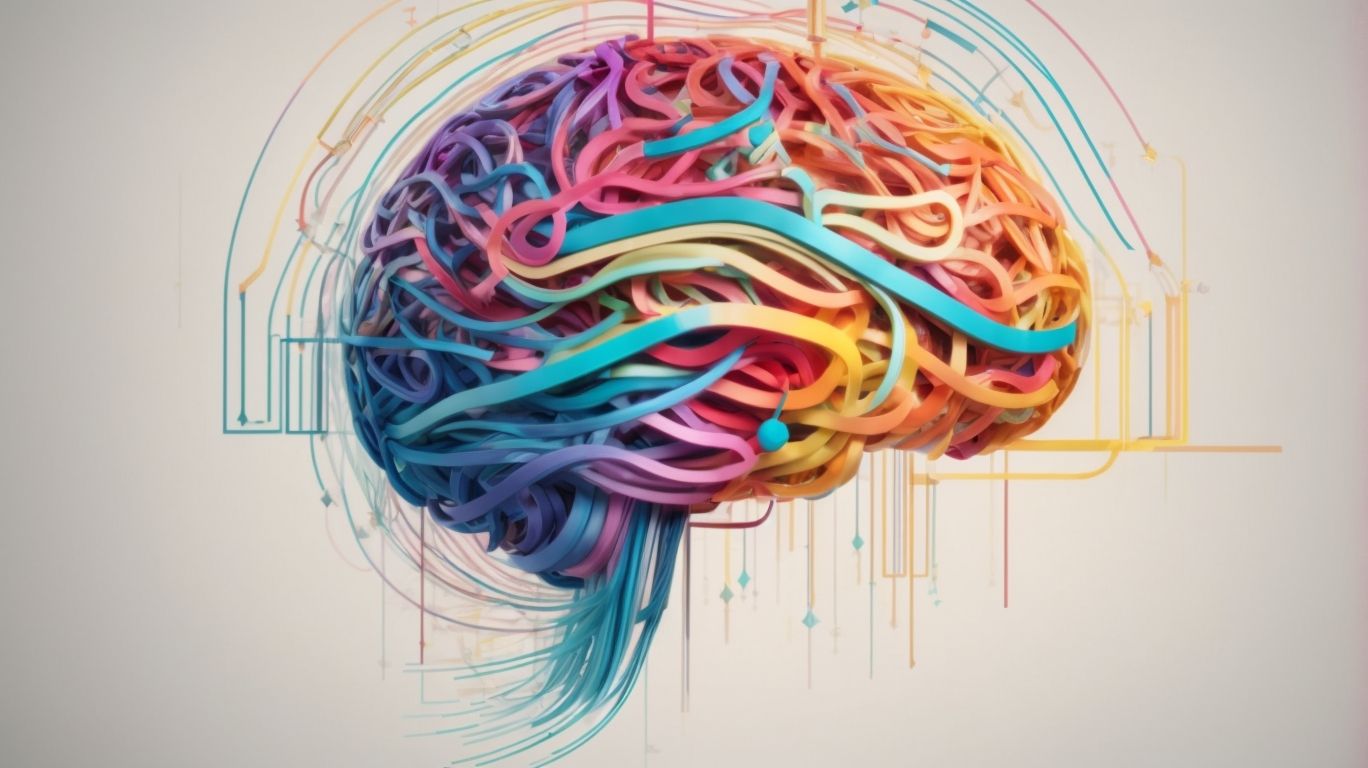Universal development is a crucial aspect of psychology that explores the patterns and processes of growth and change that occur throughout the lifespan. From the key theories of universal development, such as Piaget’s Theory of Cognitive Development and Erikson’s Theory of Psychosocial Development, to the stages of development spanning from prenatal to adulthood, there are various factors that influence universal development.
These factors include biological, environmental, cultural, and socioeconomic factors. Understanding universal development can help in psychology by identifying developmental milestones, understanding individual differences, and developing interventions and treatments.
Let’s explore the fascinating world of universal development and its significance in the field of psychology.
Contents
- 1 Key Takeaways:
- 2 What Is Universal Development?
- 3 What Are The Key Theories Of Universal Development?
- 4 What Are The Stages Of Universal Development?
- 5 What Factors Influence Universal Development?
- 6 How Can Understanding Universal Development Help in Psychology?
- 7 Frequently Asked Questions
- 7.1 What is universal development in psychology?
- 7.2 How does universal development in psychology differ from individual development?
- 7.3 What are the main theories of universal development in psychology?
- 7.4 Can universal development be observed in all cultures?
- 7.5 How does understanding universal development benefit psychologists?
- 7.6 What are the key factors that influence universal development in psychology?
Key Takeaways:
- Universal development refers to the predictable and sequential growth and changes that occur across the lifespan in all humans.
- Key theories of universal development include Piaget’s cognitive development, Erikson’s psychosocial development, and Vygotsky’s sociocultural theory.
- Stages of universal development include prenatal, infancy and toddlerhood, early childhood, middle childhood, adolescence, and adulthood.
What Is Universal Development?
Universal development refers to the continuous and systematic process of growth and maturation across cultural, social, and environmental contexts, influencing the psychological perspectives and behaviors of children and individuals.
This development is influenced by a dynamic interplay of various factors, including genetics, socio-economic status, educational opportunities, and access to healthcare.
Psychological perspectives shaped by universal development encompass cognitive, emotional, and social domains, affecting an individual’s capacity for learning, forming relationships, and adapting to diverse environments.
The social implications of universal development are profound, as it directly impacts the ability of individuals to engage with their communities, contribute to society, and participate in the workforce.
What Are The Key Theories Of Universal Development?
The key theories of universal development encompass diverse psychological perspectives and approaches proposed by renowned theorists such as Piaget, Lawrence Kohlberg, and Nucci, emphasizing the significance of socialization and cognitive pathways in understanding human development.
Piaget’s Theory of Cognitive Development
Piaget’s Theory of Cognitive Development focuses on the progressive stages of cognitive growth and biological maturation in children, underlining the intricate interplay between biological factors and cognitive advancement.
This groundbreaking theory highlights the critical role of biological factors, such as genetic predispositions and brain maturation, in shaping a child’s cognitive abilities.
Piaget proposed four primary stages of cognitive development: the sensorimotor stage, preoperational stage, concrete operational stage, and formal operational stage.
These stages represent distinct milestones in a child’s mental growth, illustrating the gradual acquisition of symbolic thought, conservation abilities, and abstract reasoning across different age ranges.
Piaget’s theory emphasizes the significance of biological maturation in enabling children to progress through these cognitive stages, indicating that biological factors profoundly influence the unfolding of cognitive capabilities in childhood.
Erikson’s Theory of Psychosocial Development delves into the critical stages of adolescence, emphasizing the interplay between social and moral dimensions, and the navigation of developmental tasks to achieve a balanced sense of self and autonomy.
In Erikson’s model, adolescence is marked by the conflict between identity versus role confusion. During this phase, individuals strive to develop a coherent sense of self while grappling with societal expectations.
This involves exploring personal values, beliefs, and aspirations, as well as integrating societal norms to build a sturdy moral framework.
Adolescents are tasked with shaping their identities, forming intimate relationships, and establishing a secure self-concept. This process helps foster their ability to autonomously make decisions and navigate the complexities of the social world.
Vygotsky’s Sociocultural Theory
Vygotsky’s Sociocultural Theory emphasizes the dynamic interplay between cognitive development, socialization, and cultural influences, highlighting the significance of social interactions and cultural contexts in shaping individuals’ developmental pathways.
According to Vygotsky, cognitive development is not solely determined by genetics or individual experiences, but it is deeply intertwined with social and cultural factors.
He proposed that learning and development occur within a social context, where individuals engage in interactions with more knowledgeable others, such as parents, teachers, or peers. Cultural tools and symbolic systems, such as language, play a crucial role in shaping one’s cognitive processes and problem-solving abilities.
What Are The Stages Of Universal Development?
The stages of universal development encompass the transitional phases from childhood through adolescence to adulthood, reflecting the intricate interplay of biological, social, and psychological factors in individuals’ developmental pathways.
Prenatal Development
Prenatal development encompasses the critical phase before birth, marked by the intricate interplay of biological and environmental factors that shape early cognitive and psychological foundations.
During this stage, the developing embryo and fetus are susceptible to various influences, including genetic predispositions, maternal health, nutrition, and exposure to toxins.
The biological factors, such as genetic inheritance and prenatal nutrition, significantly impact the structural and functional development of the brain, laying the groundwork for cognitive processes, emotional regulation, and sensory perception.
Simultaneously, environmental factors, such as maternal stress, exposure to toxins, and prenatal care, play a crucial role in shaping the early psychological foundations.
Excessive stress levels in the mother can lead to the release of stress hormones, potentially affecting the developing fetus’s neurological and behavioral outcomes.
Infancy and Toddlerhood
Infancy and toddlerhood mark the formative years of social and cognitive development, characterized by significant developmental milestones and the emergence of fundamental psychological capacities in children.
During this critical period, social interaction and attachment play a pivotal role in shaping the child’s emotional and behavioral development.
The infant’s ability to form secure attachments with primary caregivers lays the groundwork for future relationships and serves as a foundation for emotional regulation and empathy development.
Cognitive development in the early years is evident in milestones such as object permanence, sensorimotor exploration, and language acquisition, all of which form the building blocks for higher-level cognitive abilities.
Understanding these developmental processes is crucial for caregivers, educators, and policymakers to provide appropriate support and interventions that foster healthy development during infancy and toddlerhood.
Early Childhood
Early childhood represents a critical period for socialization, moral development, and the internalization of foundational values through parenting, education, and cultural influences.
This stage is pivotal in shaping a child’s understanding of social norms and values, as they interact with family members, peers, and the broader society.
Parenting styles and the quality of early education significantly impact a child’s cognitive and emotional development, laying the groundwork for their future behavior and decision-making.
Cultural influences, including traditions, beliefs, and societal expectations, play a significant role in instilling moral values and shaping a child’s worldview.
Understanding these dynamics is essential for creating supportive environments that foster positive social and moral development in children.
Middle Childhood
Middle childhood represents a period of cognitive and social development, influenced by environmental perspectives and interactions that contribute to the advancement of individuals’ cognitive and social capacities.
During this phase of development, children are exposed to various environmental stimuli, such as educational institutions, peer interactions, and family dynamics, all of which play a crucial role in shaping their cognitive and social competencies.
For instance, formal schooling significantly impacts their cognitive abilities by providing structured learning opportunities, fostering critical thinking, and enhancing problem-solving skills.
Social interactions within the family and wider community contribute to the development of empathy, emotional regulation, and interpersonal skills, all of which are critical for healthy social functioning.
Adolescence
Adolescence signifies a critical developmental phase marked by heightened psychological and moral complexities, the pursuit of autonomy, and the formation of significant interpersonal relationships.
During this transitional period, adolescents strive to assert their individuality and establish a sense of independence while navigating through the intricacies of social dynamics.
Their heightened sensitivity to peer influence and the development of moral reasoning further shape their ethical decision-making processes and moral values.
This phase also involves the exploration of personal identity and the cultivation of a strong sense of self, which is often influenced by interactions with family members, peers, and authority figures.
Adulthood
Adulthood embodies a stage of continued development, characterized by the integration of cultural, social, and cognitive perspectives, and the affirmation of values pivotal to individual identity and autonomy.
Adulthood is a time of transition from adolescence, where individuals shape their identities and take on more responsibilities in different aspects of life.
This period involves developing emotional intelligence, interpersonal skills, and a sense of purpose, all of which contribute to personal growth and fulfillment.
As adults engage with various cultural experiences and societal norms, they continue to learn and adapt, shaping their perspectives and decision-making processes.
What Factors Influence Universal Development?
Universal development is influenced by a myriad of factors, including biological, environmental, cultural, and socioeconomic influences, along with the pivotal roles of parenting and education in shaping individuals’ developmental trajectories.
Biological Factors
Biological factors play a foundational role in human development, encompassing genetic predispositions, cognitive advancements, and behavioral pathways that contribute to individuals’ developmental trajectories.
Genetic predispositions, inherited from parents, shape individuals’ physical and psychological characteristics.
These genetic variations influence susceptibility to certain diseases, mental health conditions, and even personality traits, highlighting the intricate link between genes and development.
Cognitive advancements, such as language acquisition, memory formation, and problem-solving abilities, are pivotal aspects of human development, rooted in the biological processes of brain maturation and neural connectivity.
Behavioural pathways, influenced by both genetics and environmental factors, play a crucial role in shaping individuals’ social interactions, emotional regulation, and adaptive coping mechanisms, ultimately impacting their developmental trajectories.
Environmental Factors
Environmental factors encompass a broad spectrum of cultural, social, and ecological influences, shaping individuals’ developmental pathways through diverse socialization practices and contextual experiences.
These environmental influences play a crucial role in shaping an individual’s beliefs, behaviors, and overall development.
The cultural environment introduces individuals to societal norms, traditions, and customs, influencing their perspectives and interactions. Social interactions within the community and family also contribute significantly, providing emotional support, guidance, and a sense of belonging.
Moreover, ecological factors such as access to natural resources, urban development, and environmental sustainability efforts directly impact individuals’ well-being and opportunities for growth.
Cultural Factors
Cultural factors contribute significantly to developmental pathways, encompassing the transmission of values, theoretical perspectives, and the delicate balance between individual autonomy and cultural influences.
The transmission of values within a culture serves as a foundational element in shaping an individual’s developmental trajectory.
This intricate process involves the transfer of beliefs, norms, and traditions from one generation to the next, providing a framework for understanding societal expectations and behavior.
Theoretical perspectives, such as collectivism versus individualism, play a pivotal role in shaping cultural development, with some cultures emphasizing interconnectedness and communal harmony, while others prioritize personal autonomy and achievement.
This delicate balance between individual autonomy and cultural influences necessitates a nuanced approach to understanding the impact of cultural factors on development.
It requires consideration of how individuals navigate their identities within the context of their cultural heritage, as well as the ways in which cultural norms and values shape their aspirations, decision-making processes, and interpersonal relationships.
Socioeconomic Factors
Socioeconomic factors exert significant influence on childhood development, impacting research methodologies and the understanding of how contextual disparities influence individuals’ developmental trajectories.
Studies have highlighted the profound impact of socioeconomic status on various aspects of childhood development, including cognitive, emotional, and social dimensions.
Economic inequality has been linked to disparities in educational opportunities, access to healthcare, and exposure to adverse environmental conditions, all of which can significantly shape a child’s developmental journey.
Researchers have employed diverse methodologies, such as longitudinal studies, ethnographic observations, and large-scale surveys, to unravel the nuanced interplay between socioeconomic factors and developmental outcomes.
These investigations aim to elucidate the underlying mechanisms driving disparities and inform targeted interventions to mitigate their detrimental effects on children’s well-being.
How Can Understanding Universal Development Help in Psychology?
Understanding universal development provides crucial insights for psychology, enabling the identification of developmental milestones, the understanding of individual differences, and the development of targeted interventions and treatments.
Identifying Developmental Milestones
Identifying developmental milestones is pivotal in psychology, encompassing the cognitive, emotional, and social benchmarks that aid in understanding individuals’ developmental trajectories and needs.
Understanding these milestones enables psychologists to assess an individual’s intellectual growth, attachment patterns, and interpersonal skills.
By recognizing these developmental markers, professionals can tailor interventions and guidance that align with the individual’s unique requirements.
Identifying these milestones also holds significance in early intervention and support systems, ensuring timely assistance for individuals facing challenges in reaching these crucial developmental stages.
Understanding Individual Differences
Understanding individual differences in psychology involves navigating the complexity of cultural, social, and contextual factors that contribute to diverse developmental pathways and psychological perspectives.
These factors encompass a myriad of variables, from cultural norms and values, to familial and societal influences.
The interplay of genetic predispositions and environmental determinants shapes the unique manifestations of individuals’ psychological traits and predispositions.
Recognising comprehending these diverse influences is essential in developing more inclusive and effective psychological theories and interventions.
Developing Interventions and Treatments
Developing targeted interventions and treatments in psychology involves integrating research models and childhood developmental perspectives to address diverse psychological and behavioral needs effectively.
This process necessitates a comprehensive understanding of various research methodologies and their application in assessing the complexities of psychological conditions.
By synthesizing empirical findings from developmental psychology and clinical research, practitioners can tailor interventions to individual needs, considering the interaction between biological, psychological, and social factors.
Adopting an evidence-based approach ensures that interventions are not only effective but also ethically and culturally sensitive, considering the unique experiences of each individual.




